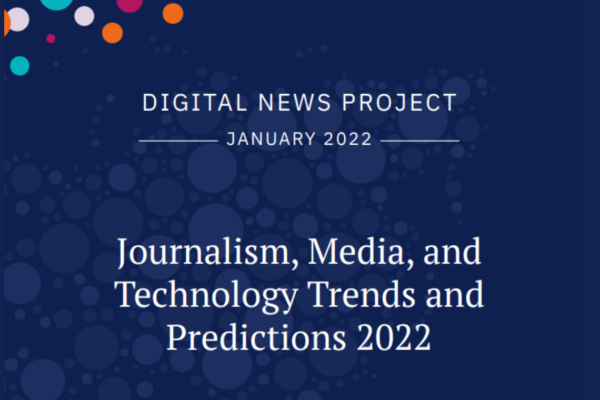Reuters Institute 2022 report: Majority of publishers optimistic about the year ahead
The protracted Covid-19 crisis has been both a major disruption and a boost to the global news industry and will continue to be a chief consideration in 2022. Yet the majority of publishers (73 per cent) say they are optimistic about the year ahead, according to a new report produced by the Reuters Institute for the Study of Journalism.
“Both journalists and audiences have, to some degree, been ‘burnt out’ by the relentless intensity of the news agenda, alongside increasingly polarised debates about politics, identity, and culture,” writes Nic Newman, the report’s author. “This could be the year when journalism takes a breath, focuses on the basics, and comes back stronger.”
The in-depth annual report is based on survey data from 246 media leaders drawn from 52 countries around the world.
One of the headline trends is around revenue. Of those questioned, 59 per cent said their revenue has increased over the last year, despite the fact that more than half (54 per cent) also relayed that page views are either static or falling. These leaders also reported that harnessing multiple revenue streams will be important in the coming year, with 79 per cent saying subscription and/or membership strategies will be one of their most important revenue priorities.
When it comes to innovation, "we can expect a back to basics approach this year," reads the report. Two-thirds of the Institute's sample (67 per cent) say they will spend most time iterating and improving existing products, making them quicker and more effective, while just one third (32 per cent) said the priority would be launching new products and brand extensions. This is largely due to lack of money (due to wider economic challenges), and difficulty in attracting and retaining technical staff.
The report highlights a wide array of trends around AI, audio's continued rise, short-form video's comeback due to the popularity of platforms like Twitch, and why 2022 will be a make-or-break year for digital-first media outlets like BuzzFeed, Bustle, Vox and Vice.
The report also calls attention to the opportunities afforded to smaller publishers thanks to tightening rules on privacy, third-party data and big tech, as well as greater public concern about misinformation - something FIPP's Jamie Gavin has been tracking weekly here.
We should also look out for a rise in open access initiatives - such as pay-it-forward subscription models, like The Flock's - which aim to increase availability of content for those unable to pay, "as a way of countering critiques about growing information inequality".
Many of these - such as remote and hybrid working - are continuations of older trends, having carried over from 2021.
Read the full report here.










